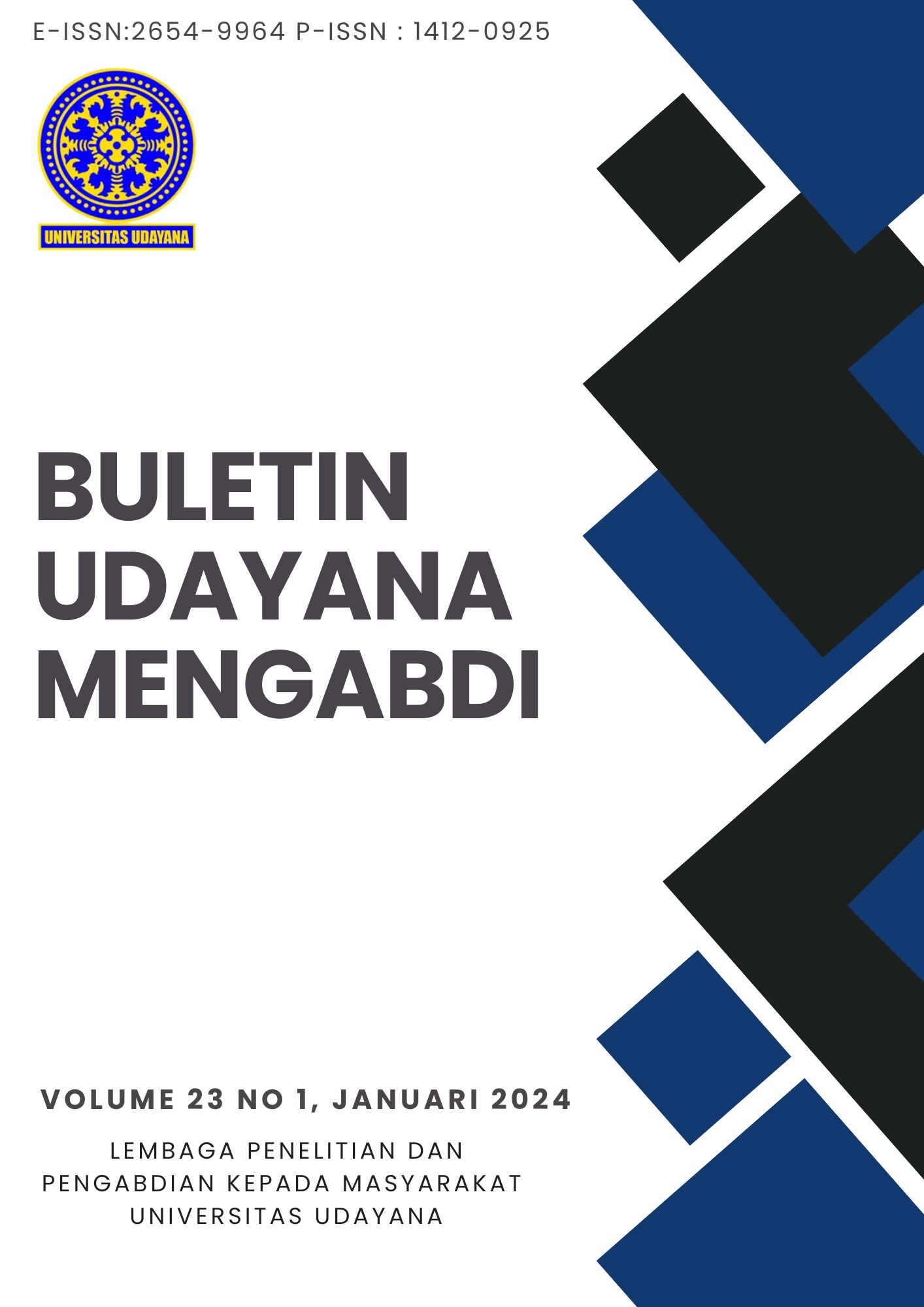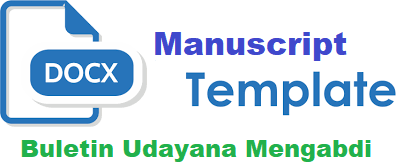SOSIALISASI PENGENALAN KEWENANGAN LEMBAGA MAHKAMAH KONSTITUSI DI SEKOLAH DASAR
Abstract
The purpose of this service is to socialize the importance of introducing the constitution at an early age, in this case focusing on state institutions both before and after the amendment to the 1945 Constitution of the Republic of Indonesia. One of the new state institutions that emerged after the amendment was the Constitutional Court. The Constitutional Court has the main function of being the guardian of the constitution, which is interpreted as an actor of judicial power who has the dignity to ensure that the constitution, as the highest law, can be enforced properly. From the description above, there are 2 (two) problems, namely: (1) what is the position of the Constitutional Court in the constitutional structure in Indonesia, and (2) how is introduced at an early age, especially the authority of the Constitutional Court institution at Elementary School Number 3 Padangkerta, Karangasem.The target is for the students to understand the constitution from an early age, which of course is adjusted to the level of education, and have the ability to distinguish each authority or obligation of the Constitutional Court. The methods used in this service are lectures, discussions, and questions and answers, as well as providing direct examples related to the decisions. The result of this service is that students get a comprehensive picture of the authority of the Constitutional Court.
Keywords: Authority, constitutional court, institution, socialization.
Downloads
References
Akbar,P. (2013). Lembaga-Lembaga Negara Menurut UUD NRI Tahun 1945. Jakarta: Sinar Grafika.
Aryani,N.M.,Hermanto,B. (2019) Gagasan Perluasan Lembaga Negara sebagai Pihak Pemohon dalam Sengketa Kewenangan Antar Lembaga Negara di Mahkamah Konstitusi Republik Indonesia. Jurnal Legislasi Indonesia (Indonesian Journal of Legislation). 16(2). 179-195.
Ayunita, K. (2017). Pengantar Hukum Konstitusi dan Acara Mahkamah Konstitusi. Jakarta: Mitra Wacana Media.
Bachtiar. (2019). Problematika Implementasi Putusan Mahkamah Konstitusi Pada Pengujian UU Terhadap UUD. Jakarta: Raih Asa Sukses.
Faiz, P.M. (2019). Amandemen Konstitusi Komparasi Negara Kesatuan dan Negara Federal. Jakarta: Rajawali Pers.
Huda, N.M. (2016). Sengketa Kewenangan Lembaga Negara Dalam Teori dan Praktik Di Mahkamah Konstitusi. Yogyakarta: FH UII Press.
_______. 2018. Kekuatan Eksekutorial Putusan Mahkamah Konstitusi.Yogyakarta: FH UII Press.
Martitah. (2013). Mahkamah Konstitusi (Dari Negatif Legislature ke Positive Legislature?). Jakarta: Konstitusi Press.
Mas, M. (2018). Hukum Konstitusi dan Kelembagaan Negara. Jakarta: RajaGrafindo Persada.
Soebechi, H.I. (2016). Hak Uji Materiil. Jakarta: Sinar Grafika.
Yuliantari,I.G.A.E. (2015). Legal Standing Komisi Pemberantasan Tindak Pidana Korupsi (KPK) Dalam Sengketa Kewenangan Lembaga Negara Di Mahkamah Konstitusi. Jurnal Magister Hukum Udayana (Udayana Master Law Journal.4 (2). 272-280.
Undang-Undang Dasar Negara Republik Indonesia Tahun 1945
UU Nomor 24 Tahun 2003 tentang Mahkamah Konstitusi, sebagaimana telah beberapa kali diubah dengan perubahan terakhir melalui Undang-Undang Nomor 7 Tahun 2020 tentang Perubahan Ketiga Atas Undang-Undang Nomor 24 Tahun 2003 tentang Mahkahah Konstitusi.

This work is licensed under a Creative Commons Attribution-ShareAlike 4.0 International License.

This work is licensed under a Creative Commons Attribution-ShareAlike 4.0 International License.




.png)


1.png) GARUDA - GARBA RUJUKAN DIGITAL
GARUDA - GARBA RUJUKAN DIGITAL



